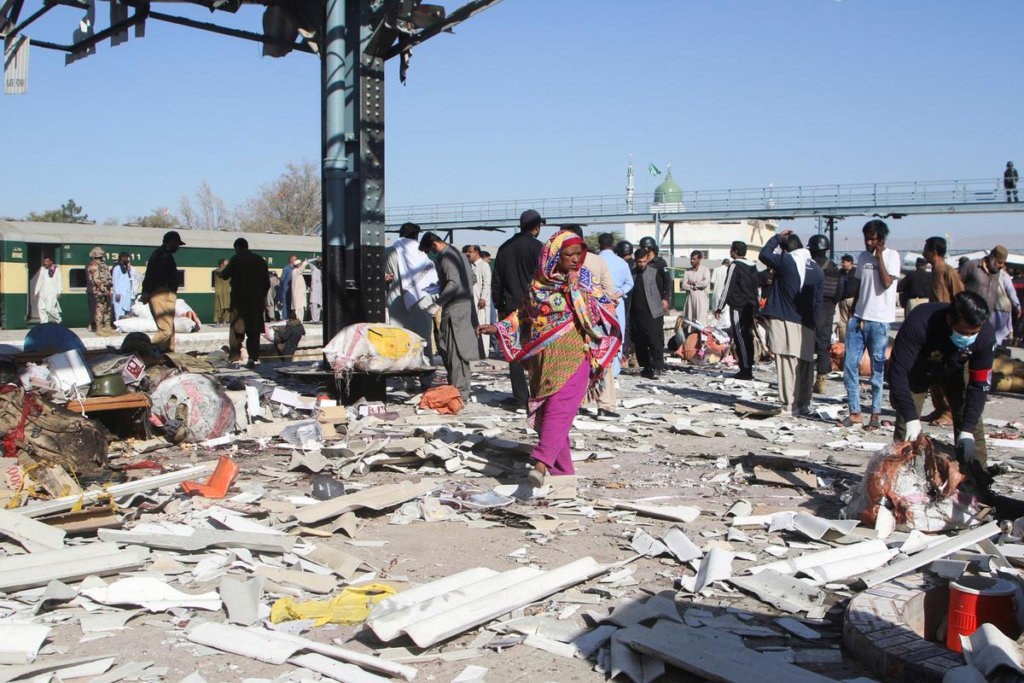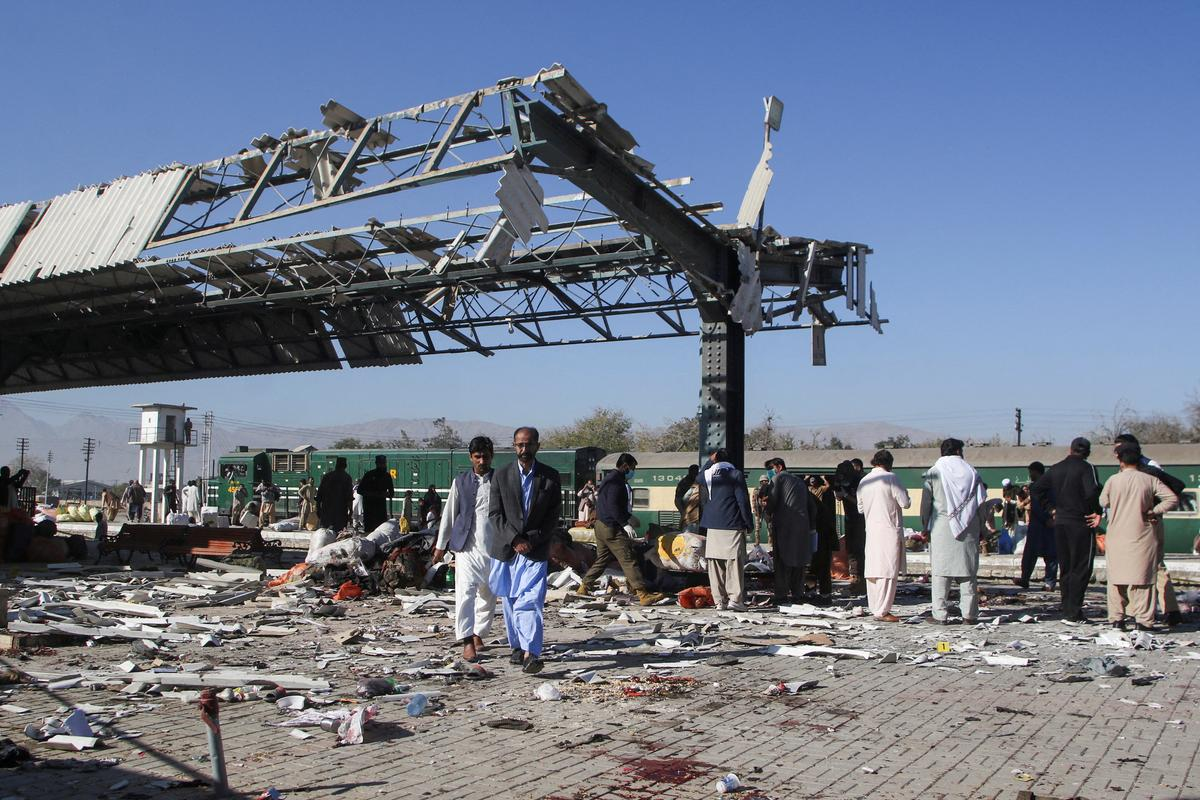The recent Bomb Blast at Pakistan Railway Station, is a stark reminder of the enduring conflicts and violence that have gripped the region.
With separatist militant groups actively challenging Pakistan’s sovereignty, the attack highlights both the human cost of insurgency and the political complexities surrounding the province of Balochistan.
Bomb Blast at Pakistan Railway Station: Rising Militancy in Balochistan
The explosion, which killed at least 25 people and injured over 50, was carried out by a suicide bomber at Quetta’s main railway station early on a Saturday morning. According to officials, the platform was crowded with passengers when the blast occurred, leaving behind a scene of chaos, death, and destruction.
The Baloch Liberation Army (BLA), a separatist group, claimed responsibility for the attack. The group has carried out several high-profile attacks over the past few years, mostly in Balochistan and major cities in Pakistan.
The BLA’s recent activities have gained attention both domestically and internationally, especially in areas where Chinese investments are heavily involved in projects under China’s Belt and Road Initiative (BRI).
Read : “I’m Donald Trump’s Real Daughter,” Claims Pakistani Girl: Watch
The suicide blast in Quetta further adds to the long list of violent incidents associated with Baloch separatist militants, who are pushing for greater autonomy and, in some cases, complete independence for Balochistan. This attack also brings to light the broader implications for the people of Pakistan, who face threats to their safety amid rising insurgent violence.
Human Cost and Immediate Repercussions
The incident left dozens of civilians, railway staff, and security personnel among the casualties. Eyewitnesses reported scenes of utter devastation as passengers were left scrambling for safety, with some victims missing limbs or otherwise severely injured. Eyewitness Fareed described the event as chaotic, with passengers running frantically to escape the blast, a heart-wrenching image of the traumatic experience faced by those present.
Among the dead were civilians who were simply waiting for their train, alongside railway employees performing their daily duties. The explosion reflects the indiscriminate nature of such attacks, which target public spaces and people, making every citizen a potential victim in this volatile security environment.
WATCH: At least 24 people were killed and more than 40 injured in a bomb blast at a railway station in the city of Quetta in southwestern Pakistan https://t.co/YWAyGZDuIP pic.twitter.com/xbbvSgEEKp
— Reuters Asia (@ReutersAsia) November 9, 2024
Prime Minister Shehbaz Sharif strongly condemned the attack and expressed grief over the lives lost. In a country that has experienced numerous terror attacks, this bombing serves as a grim reminder of the need for enhanced security measures and the importance of preventing extremism from spreading further.
The provincial government, led by Chief Minister Sarfraz Bugti, has initiated an investigation to understand the details and motives behind the blast. Security forces immediately cordoned off the area to begin a thorough examination, and statements from local officials indicate a comprehensive inquiry into the incident.
However, such investigations, while essential, are often followed by the question of what more can be done to prevent similar incidents in the future. The families of those affected by the attack are left with unimaginable loss, while survivors carry the scars—both physical and emotional—of the tragedy.
Political and Strategic Implications of the Attack
Balochistan, rich in resources and strategically important for Pakistan, has long been a hotbed of insurgency and unrest. The BLA and other militant groups see Chinese influence in the province, specifically the development of the Gwadar port, as a threat to their autonomy.
As a central part of China’s Belt and Road Initiative (BRI), Gwadar port is of immense strategic importance, serving as a gateway for trade and investment between China and other countries. The increasing presence of Chinese nationals and infrastructure projects in Balochistan has become a major point of contention for separatist groups.

The recent attacks carried out by the BLA underscore a trend of targeting Chinese interests and workers in Pakistan, which poses a significant risk to Pakistan-China relations. In October, for instance, a convoy of Chinese engineers and investors was ambushed, resulting in the deaths of two Chinese citizens.
These attacks reflect the BLA’s growing capacity to conduct high-impact operations that could potentially impact Pakistan’s economic ties and regional diplomacy. Chinese involvement in Pakistan is not just limited to economic investment but also includes a robust security component to protect Chinese citizens and assets.
China’s response to these incidents has been one of caution and concern. As attacks on Chinese personnel increase, China may pressure Pakistan to take stronger actions against insurgents, potentially involving more military intervention in Balochistan.
However, Pakistan faces a delicate balance: while securing foreign investments and diplomatic ties with China is crucial, it must also address the root causes of local grievances and political unrest in Balochistan.
This dual challenge makes it imperative for Pakistan to pursue not only counterterrorism measures but also development and political inclusion to address the socioeconomic needs of its people.

